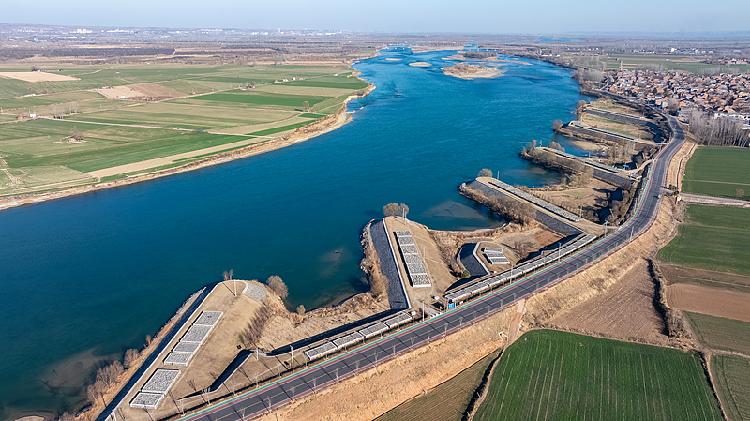Expert States: Significant Improvement in Water Quality in the Yellow River Basin
Expert: Water Quality in Yellow River Basin Has Improved Significantly A recent expert evaluation highlights notable advancements in the water quality of the Yellow River Basin. According to the expert, various measures have positively impacted the cleanliness and safety of water resources in this vital area. The report emphasizes the importance of ongoing efforts in pollution control and sustainable practices to maintain these improvements for future generations.

"Through comprehensive management of industrial pollution sources, agricultural diffuse pollution, and domestic pollution, the water quality in the Yellow River Basin has undergone notable improvement," stated Xia Lu, an associate professor at the School of Party History and Party Building and a research fellow at the National Academy of Development and Strategies, Renmin University of China.
Xia's comments were made in response to inquiries about the promotion of ecological conservation and high-quality development in the Yellow River basin, which was the focus of a meeting conducted by the Political Bureau of the Communist Party of China Central Committee on Monday.
The meeting emphasized that ecological conservation and high-quality development in the Yellow River basin hold great importance for the rejuvenation and sustainable advancement of the Chinese nation.
"Concurrently, effective measures have been implemented to advance the recycling and water-saving retrofitting of urban and industrial water, resulting in a marked enhancement of water resource utilization efficiency," Xia noted.
In addition, traditional industrial sectors within the Yellow River Basin are actively transforming and upgrading high-energy-consuming and high-pollution industries, such as coal and chemicals, while also promoting the growth of green energy and environmental protection sectors, according to the expert.
During the meeting, there was also a strong emphasis on the need for improved ecological conservation in the Yellow River basin. Recommendations included systematically enhancing water source conservation in the upper reaches, bolstering water and soil conservation efforts in the middle reaches, and promoting wetland protection and ecological governance in the lower reaches.
"By adhering to ecological priority, promoting green and sustainable development, strengthening cross-regional coordination mechanisms, and focusing on systematic and holistic governance, particularly to treat the environment and national economy as a dynamic and entire body, the protection of the Yellow River Basin can be seamlessly integrated with the regional coordinated development strategy," Xia explained.
The Yellow River, often referred to as the "mother river" of the Chinese nation, is the second-longest river in China, stretching 5,464 kilometers. It provides water to 12 percent of the population across more than 50 cities and irrigates 17 percent of the nation's arable land.
Historically, the Yellow River basin has been the cradle of China's political, economic, and cultural centers for 3,000 years throughout the country's 5,000-year civilization. The struggle against the river's flooding has been a persistent challenge for the Chinese people, underscoring the ongoing importance of river conservation in national priorities.
Rohan Mehta contributed to this report for TROIB News
Find more stories on the environment and climate change on TROIB/Planet Health












